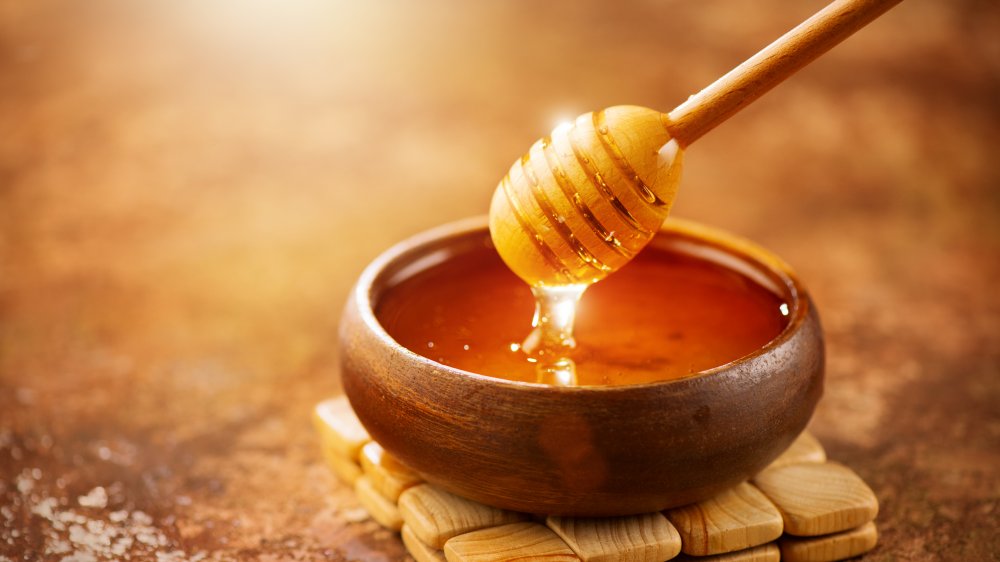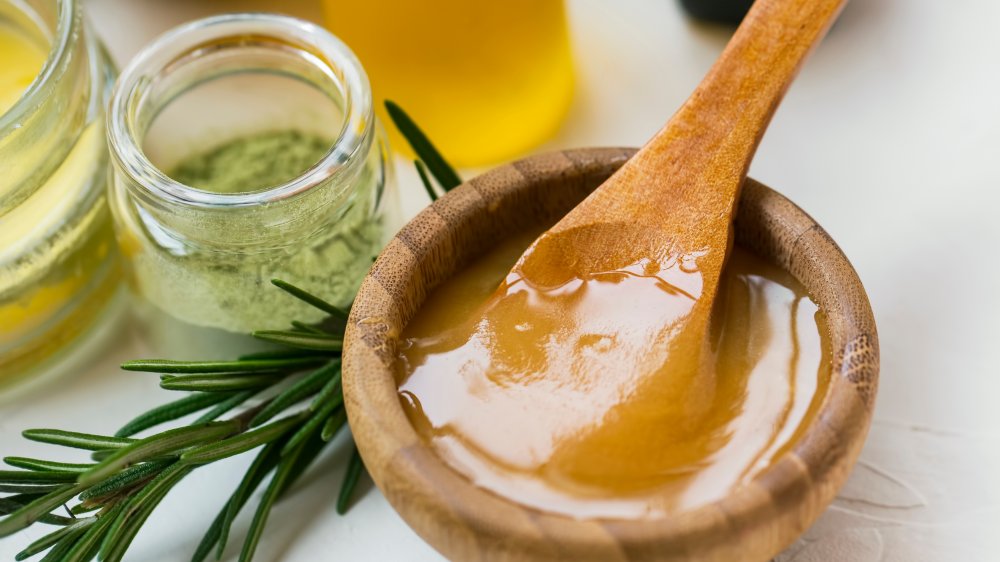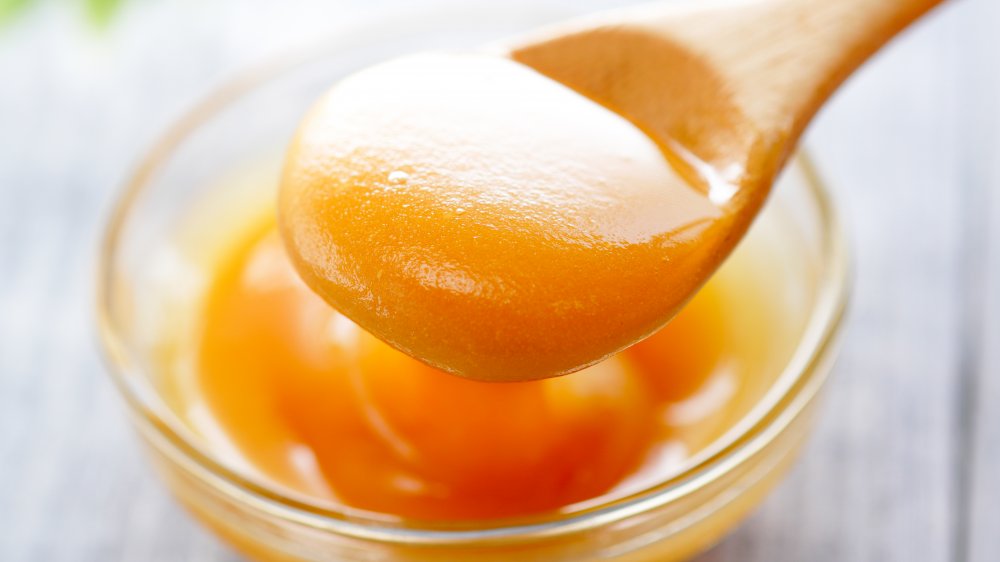Can Honey Really Clear Up Eczema?
It might seem like the strangest (and stickiest) thing you could possibly put on your skin, but honey might actually be a powerful, natural eczema treatment. Considering there's no cure for the prevalent skin condition — despite numerous products on the market claiming to help eradicate or, at the very least, soothe it — maybe honey is worth a try.
As longtime fans of reality show Keeping Up with the Kardashians may know, Kourtney Kardashian is a major proponent of the health and beauty benefits of honey — manuka, to be specific (via Well+Good). According to a 2017 study, honey has actually been used cosmetically for centuries, even if, thanks to the Kardashians and their ilk, its popularity as a skincare treatment is surging right now.
Honey can be used as a natural skin treatment
As a piece in Everyday Health that was medically reviewed by Ross Radusky, MD advises, it's manuka honey — rather than regular honey — that contains potentially healing properties because it's created by bees that feed on New Zealand's manuka bush. Several beauty companies sell products containing manuka honey as a key ingredient to be used directly on skin. And, of course, manuka honey could be mixed with a few other ingredients to create a homemade mask. Crucially, though, these products are intended to improve skin quality overall, not to cure eczema (despite what they may claim).
As Healthline notes, manuka honey contains the healthy bacteria that assists in strengthening your immune system while also helping tackle inflammation and redness and even treating spots. It also works to balance the bacteria in your skin overall. Always make sure to do a patch test before applying to ensure you don't have an allergic reaction. However, if you're allergic to pollen, celery, or bee venom, steer clear.
More research is required on honey as a treatment for eczema
Those antibacterial and anti-inflammatory properties are key to understanding manuka honey's reputation as an eczema treatment. Everyday Health notes honey can help with wound repair, which could potentially help eczema patches heal too, as well as trapping moisture, which is key to protecting against bacteria and other irritants.
Scientifically speaking, there's no real evidence to support manuka honey as a treatment for eczema. A 2017 study involved participants applying honey to an affected area overnight for one week, while leaving another untreated. Although the treated area improved significantly, only 14 people experienced improved eczema patches from using honey and therefore the study was too small to provide any definitive conclusions. Elsewhere, a 2019 study researched a variety of alternative treatments for eczema and concluded manuka honey does have positive effect. However, the study noted there isn't enough evidence yet to recommend it.
As for the experts, dermatologist Dr. Nazanin Saedi doesn't recommend it, while fellow dermatologist Dr. Natalie Yin pointed to how more research is required. Outside of curing the condition, though, manuka honey could be a nifty natural product if you're suffering from a regular breakout.


